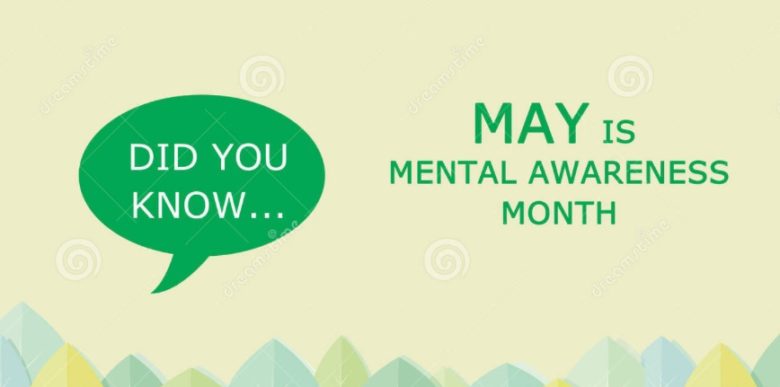It’s good to talk… but better to listen… Mental Health Awareness week 2018
1
It’s good to talk…
A problem shared is a problem halved…
We regularly hear of the importance of talking, especially to our mental and emotional wellbeing. Mental Health activists promote it. Campaigns are dedicated to it. Even the Royals got on board and promoted it. A huge and ever expanding mental health industry is dedicated to talking. We even have long established phrases encouraging it.
But with 1 in 6 people in the uk said to be affected by some form of mental ill Health each year, and approximately 1 in 3 of us experiencing some
SelfishMother.com
2
difficulties in our lifetime, is promoting TALKING enough?
As a (previously) very private and independent person, sharing my thoughts and feelings and asking for help has proved extremely difficult. Not only for me, but for those around me. You see, I’m not the only one who sees me as strong, independent and able to cope with pretty much anything life throws at me. Some of my very closest, nearest and dearest also see me in that way and as a result have been unable to hear what I’m saying.
For a long time, I’ve had the feeling that killing
SelfishMother.com
3
myself (or a damn good attempt at it) would be the only way to make my true feelings heard. (No need to call the Samaritans-I am not suicidal!) No matter how I said what I felt or how I presented it (tears, shouting, hysteria), my feelings went unheard. I was met with comments like “you seem too well” and “but you still get on with it every day” and “you’re strong-you’ll manage” when to me, it was VERY clear I wasn’t well or coping at all! I was even told “we’ve heard all this before, what’s different this time?”. And that’s
SelfishMother.com
4
when it struck me: it’s hard to talk, but it can be just as hard to listen.
In order to listen, to completely hear what someone is saying, we must put aside our own perceptions, opinions and experiences.
We must listen and only listen. Listening does not involve preconceived ideas or any form of judgement. Nor does it involve giving advice. A persons feelings are theirs and they know them best. A persons experiences are not in any way related to yours or anyone else’s. Experiencing a situation more than once does not diminish feelings (can you
SelfishMother.com
5
imagine saying to a cancer patient “this again?” when they had a relapse?).
If we can listen, focussing only on what the talker is saying, then it IS good for them to talk. It is empowering and enabling.
But to listen and hear only what we want to or already believe to be true, is more damaging than not talking in the first place. It is frustrating and upsetting for the person speaking.
We recognise the difficulties in starting “that” conversation and promote ways of starting it and making ourselves heard. But listening to what is said
SelfishMother.com
6
can present as many difficulties. We need campaigns promoting what it means to truly listen so that the 1 in 6 of us this year and next facing mental health challenges, have 5 out of 6 willing and able to truly support us.
SelfishMother.com
This blog was originally posted on SelfishMother.com - why not sign up & share what's on your mind, too?
Why not write for Selfish Mother, too? You can for free and post immediately.
We regularly share posts on @SelfishMother Instagram and Facebook :)
Michelle Appleby - 16 May 18
It’s good to talk…
A problem shared is a problem halved…
We regularly hear of the importance of talking, especially to our mental and emotional wellbeing. Mental Health activists promote it. Campaigns are dedicated to it. Even the Royals got on board and promoted it. A huge and ever expanding mental health industry is dedicated to talking. We even have long established phrases encouraging it.
But with 1 in 6 people in the uk said to be affected by some form of mental ill Health each year, and approximately 1 in 3 of us experiencing some difficulties in our lifetime, is promoting TALKING enough?
As a (previously) very private and independent person, sharing my thoughts and feelings and asking for help has proved extremely difficult. Not only for me, but for those around me. You see, I’m not the only one who sees me as strong, independent and able to cope with pretty much anything life throws at me. Some of my very closest, nearest and dearest also see me in that way and as a result have been unable to hear what I’m saying.
For a long time, I’ve had the feeling that killing myself (or a damn good attempt at it) would be the only way to make my true feelings heard. (No need to call the Samaritans-I am not suicidal!) No matter how I said what I felt or how I presented it (tears, shouting, hysteria), my feelings went unheard. I was met with comments like “you seem too well” and “but you still get on with it every day” and “you’re strong-you’ll manage” when to me, it was VERY clear I wasn’t well or coping at all! I was even told “we’ve heard all this before, what’s different this time?”. And that’s when it struck me: it’s hard to talk, but it can be just as hard to listen.
In order to listen, to completely hear what someone is saying, we must put aside our own perceptions, opinions and experiences.
We must listen and only listen. Listening does not involve preconceived ideas or any form of judgement. Nor does it involve giving advice. A persons feelings are theirs and they know them best. A persons experiences are not in any way related to yours or anyone else’s. Experiencing a situation more than once does not diminish feelings (can you imagine saying to a cancer patient “this again?” when they had a relapse?).
If we can listen, focussing only on what the talker is saying, then it IS good for them to talk. It is empowering and enabling.
But to listen and hear only what we want to or already believe to be true, is more damaging than not talking in the first place. It is frustrating and upsetting for the person speaking.
We recognise the difficulties in starting “that” conversation and promote ways of starting it and making ourselves heard. But listening to what is said can present as many difficulties. We need campaigns promoting what it means to truly listen so that the 1 in 6 of us this year and next facing mental health challenges, have 5 out of 6 willing and able to truly support us.
Did you enjoy this post? If so please support the writer: like, share and comment!
Why not , too? You can share posts & events immediately. It's free!
I’m a mum, a wife, a teacher and, above all else, a human. A human who has struggled to feel “good enough” most of her life but is slowly getting it right for herself, writing about life’s lessons along the way. (I’m defjnitely NOT a blogger type, whatever they are: I just like writing therapeutically.)
**all views are MY OWN and not affiliated with any organisation or professional body**
LIST




















